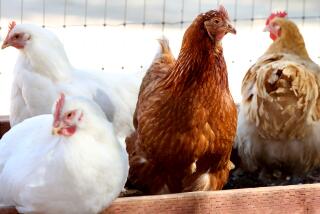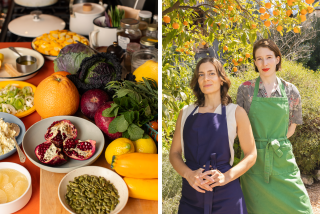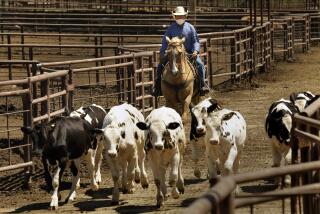Do you need to be a vegetarian to lead a healthy life?

Can a vegetarian diet add years to your life?
A new study suggests the answer could be yes. After examining the health records of 73,308 people for an average of nearly six years, researchers discovered that vegetarians were 12% less likely to die during that period than people who ate meat more than once a week.
Researchers from Loma Linda University in California recruited members of the Seventh-day Adventist Church, who are strongly encouraged to follow a vegetarian diet. As such, 52% of the sample fit into one of four categories of vegetarians: 7.6% were vegans (avoiding eggs, dairy, fish and other meat), 28.9% were lacto-ovo-vegetarians (who ate dairy and eggs but avoided fish and meat), 9.8% were pesco-vegetarians (who ate eggs, dairy and fish but avoided other meat) and 5.5% were semi-vegetarians (who ate eggs, dairy and fish regularly but ate other meats only once a week). The remaining 48.2% of people in the study were classified as nonvegetarians.
For the vegetarians in the study, the diets were not a passing fad. Pesco-vegetarians had been following that diet for 19 years, on average, and vegans had cut out meat, dairy and eggs for 21 years, on average. Lacto-ovo-vegetarians had not eaten fish or meat for 39 years, on average.
And what were the health benefits of vegetarianism? Compared to the nonvegetarians, those who followed any type of vegetarian diet were 12% less likely to die of any cause during the course of the study. For men, being a vegetarian reduced the overall risk of death by 18%; for women the overall risk of death fell by 7%. Men also reduced their risk of death due to cardiovascular disease or due to ischemic heart disease by 29%. (There was no corresponding benefit for women.)
Different types of vegetarian diets produced different types of benefits. For instance, compared with nonvegetarians, those who followed a pesco-vegetarian diet reduced their risk of death from any cause by 19% during the course of the study. In men, the diet also reduced the risk of death due to cardiovascular causes by 34%; in women, it reduced the risk of death due to ischemic heart disease by 49%.
Men and women who followed a lacto-ovo-vegetarian diet reduced their risk of death from any cause by 9% during the study period. And vegan men were 55% less likely to die as a result of ischemic heart disease, 42% less likely to die of cardiovascular causes and 28% less likely to die of any cause compared to nonvegetarians.
The results were published online Monday by the journal JAMA Internal Medicine.
None of this proves that vegetarians live longer than nonvegetarians – the study volunteers will have to be tracked longer to see if that is true. But the results to date are certainly consistent with the idea.
The study authors speculate that vegetarians had fewer life-threatening health problems because they aet more fiber and avoided saturated fat, factors known to boost heart health. But the researchers didn’t know why men were so much more likely to benefit than women.
“The biological effect of dietary factors on mortality may be different in men and women,” they speculated. More studies are needed to figure this out, they said.
Also puzzling was why the vegetarian Seventh-day Adventists did better than a group of British vegetarians followed as part of another long-term study. The American vegetarians ate more fiber and vitamin C than their British counterparts, but it’s not clear that this explains the difference, they noted.
Does this mean you should become a vegetarian? Not necessarily, writes Dr. Robert Baron, a general internist at UC San Francisco.
In a commentary that accompanies the study, Baron recalls his own conversion to a lacto-ovo-vegetarian diet as a graduate student studying nutrition in the 1970s – an effort he abandoned during medical school due to “the lack of vegetarian options in hospital cafeterias,” he wrote.
These days, he noted, people who follow a meat-free diet are likely to be motivated by religious, ethical or environmental concerns, not just by health ones. And from a health point of view, whether or not you eat meat isn’t as important as limiting your consumption of sugary drinks, foods with added sugar, refined grains and most saturated fats and trans fats. Similarly, everyone can benefit by eating more fruits and vegetables, whole grains, legumes and nuts.
“Achieving these goals trumps the more narrow goals of whether to include moderate amounts of dairy, eggs, fish, or even meat,” Baron wrote. “Our debates about the superiority of one diet over another have not served the public well.”
You can read a summary of the study online here and the commentary here.
Return to Science Now.







